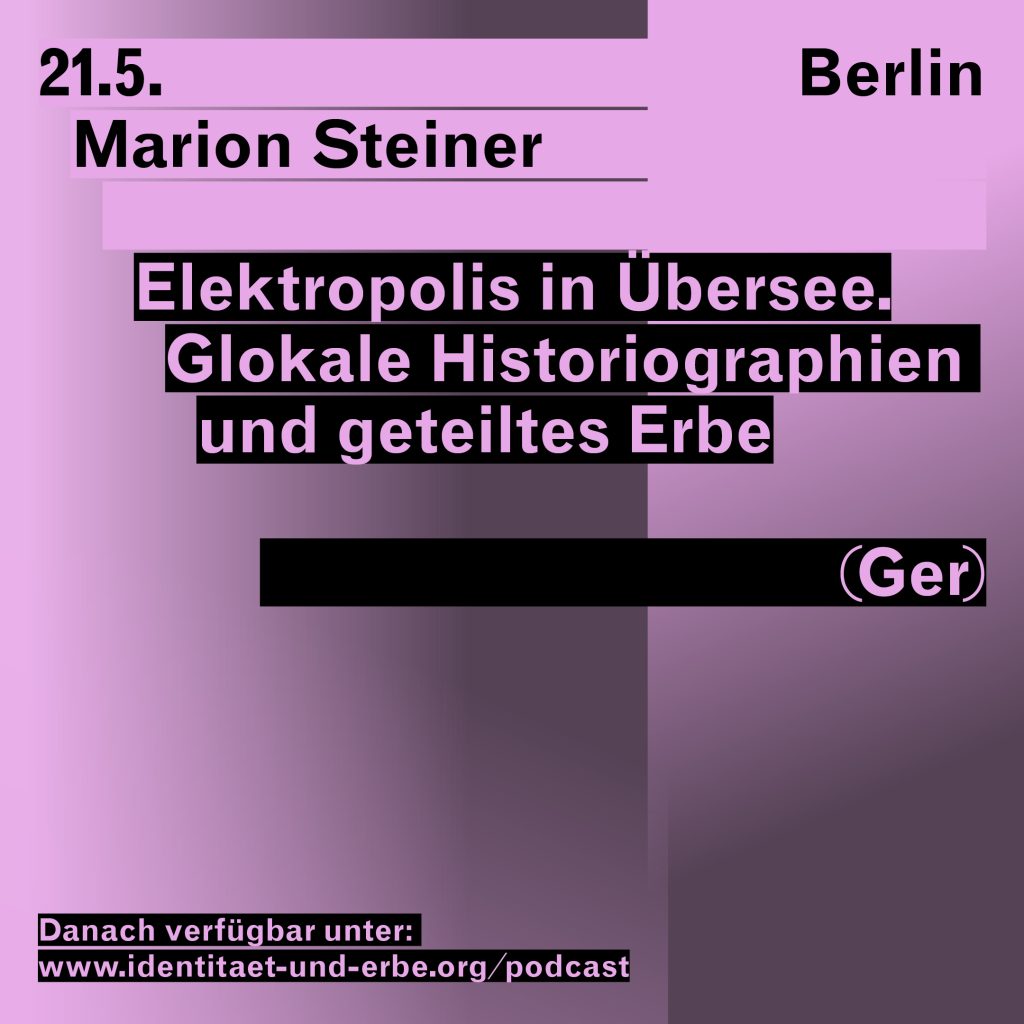Marion Steiner: Electropolis overseas. Glocal historiographies and shared heritage (GER)
Based on an analysis of the technical, economic and cultural history of the electricity business of Berlin companies and banks in Latin America at the end of the 19th and beginning of the 20th century, my lecture will shed light on the industrial heritage of this period in Valparaíso, Chile. In the hinterland of this city, once the most important commercial and financial centre on the west coast of South America, near the small town of Placilla, a consortium founded by AEG and Deutsche Bank built the hydroelectric system El Sauce y La Luz, which –albeit in a largely ruinous state– is still preserved today.
These facilities, which went into operation in 1906 and were completed in 1910, are not only an AEG hydroelectric project unique in the world for its precocity. They are also a shared heritage between the legendary “Electropolis” Berlin and the historic world port city of Valparaíso. The fact that both cities are UNESCO World Heritage Sites makes a critical historiography and examination of the current construction of heritage in both cities all the more interesting, and research into it all the more necessary. Doing this together enables the construction of a “glocal” heritage that connects the two places and also addresses the dark sides of German imperialism.
My presentation will focus on the joint efforts of the international research community and the local heritage community in Valparaíso, which are concentrated in the Historical Museum and Cultural Centre of Placilla. For over 10 years now, we have been fighting for the recognition of the heritage value of these sites, which currently have no official protection status but have become an anchor of social and cultural identity for the local population.
The lecture is part of my Chilean research project ANID-FONDECYT INICIACIÓN 11230957 in cooperation with the Bauhaus University Weimar, the TU Berlin and the Berlin Centre for Industrial Heritage.
I will be speaking in German; questions can be asked and answered also in English or Spanish.
Marion Steiner studied Geography and European Ethnology at Humboldt University Berlin, Urban and Regional Planning at TU Berlin and Geopolitics at University Paris 8. Her dissertation The Chilean Socket. A Brief World History of the German Electrification of Santiago and Valparaíso, 1880-1920 (in German) was defended at and published by Bauhaus University Weimar in 2019. During her professional career, she has been involved in UNESCO World Heritage nominations of former coal mining regions in France, Germany and Chile. From 2011 to 2015, she was the first coordinator of the Berlin Center for Industrial Heritage; from 2016 to 2018, deputy head of the Industrial Heritage Department of the Ruhr Regional Association; and from 2018 to 2022, professor of geography at the Catholic University of Valparaíso. Her research focuses on global urban histories, European technological and scientific imperialism and decolonial perspectives on industrial heritage from the Global South. She currently lives mainly in Chile and, as Secretary General of TICCIH, is committed to industrial heritage worldwide. Her most important publications in Spanish include the book Light for Valparaíso. The Hydroelectric Complex El Sauce y La Luz: An industrial heritage shared between Placilla de Peñuelas and Elektropolis Berlin (Valparaíso: Centro Cultural Placilla, 2021).
